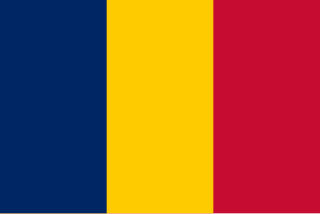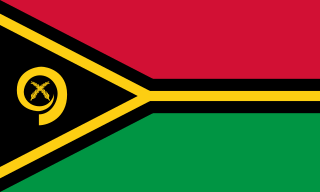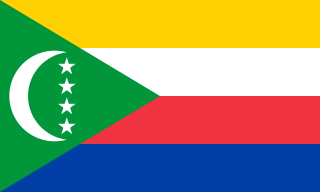
The 2004 Summer Olympics, officially the Games of the XXVIII Olympiad, and officially branded as Athens 2004, were an international multi-sport event held from 13 to 29 August 2004 in Athens, Greece. The Games saw 10,625 athletes compete, some 600 more than expected, accompanied by 5,501 team officials from 201 countries, with 301 medal events in 28 different sports. The 2004 Games marked the first time since the 1996 Summer Olympics that all countries with a National Olympic Committee were in attendance, and also marked the first time Athens hosted the Games since their first modern incarnation in 1896 as well as the return of the Olympic games to its birthplace. Athens became one of only four cities at the time to have hosted the Summer Olympic Games on two occasions. A new medal obverse was introduced at these Games, replacing the design by Giuseppe Cassioli that had been used since 1928. The new design features the Panathenaic Stadium in Athens rectifying the long-running mistake of using a depiction of the Roman Colosseum rather than a Greek venue.

Turkey competed at the 2004 Summer Olympics in Athens, Greece, from 13 to 29 August 2004. Turkish athletes have competed at every Summer Olympic Games since its debut in 1908. Turkey did not attend the 1920 Summer Olympics in Antwerp, the 1932 Summer Olympics in Los Angeles at the period of worldwide Great Depression, and the 1980 Summer Olympics in Moscow because of its support for the United States boycott. The Turkish Olympic Committee sent the nation's largest delegation to the Games. A total of 65 athletes, 45 men and 20 women, competed in 10 sports. There was only a single competitor in shooting and taekwondo.
Basharmal Sultani is an Afghan Olympic athlete, who competed in boxing in the 2004 Summer Olympics in Athens, Greece. He was invited to participate by the International Olympic Committee. He lost his first round bout in the welterweight category to Mohamed Hikal of Egypt on points, 40–12.

Kiribati competed in the Summer Olympic Games for the first time at the 2004 Summer Olympics in Athens, Greece, from August 13–29, 2004. The country sent three representatives to the Games: two in athletics and one in weightlifting. As of 2012, Meamea Thomas has the best finish of any I-Kiribati athlete in Olympic history. Kiribati did not win medals at these Games.

São Tomé and Príncipe competed at the 2004 Summer Olympics in Athens, Greece, which was held from 13 to 29 August 2004. The country's participation at Athens marked its third appearance in the Summer Olympics since its debut in the 1996 Summer Olympics.

Chad competed at the 2004 Summer Olympics in Athens, Greece, from 13 to 29 August 2004. The country's participation at Athens marked its tenth appearance in the Summer Olympics since its debut at the 1964 Summer Games in Tokyo, Japan. The delegation included two track and field athletes; Djikoloum Mobele in the men's 100 metres and Kaltouma Nadjina in the women's 400 metres. Both athletes participated at the Games through wild card places since they did not meet the required standards to qualify. Nadjina progressed past the first round of her competition, but was eliminated in the semi-finals.

Vanuatu competed at the 2004 Summer Olympics in Athens, Greece, which was held from 13 to 29 August 2004. The nation's appearance at the 2004 Athens Games marked its fifth appearance at the Summer Olympics since its debut at the 1988 Summer Olympics.

Togo competed at the 2004 Summer Olympics in Athens, Greece, from 13 to 29 August 2004. The country's participation at Athens marked its seventh appearance in the Summer Olympics since its debut at the 1972 Summer Games in Munich, West Germany. The delegation included two track and field athletes and a single canoeist; Jan Sekpona in the men's 800 metres, Sandrine Thiébaud-Kangni in the women's 400 metres, and Benjamin Boukpeti in the men's K-1. Both Sekpona and Thiébaud-Kangni were eliminated in the first round of their competitions, while Boukpeti progressed to the semi-finals.
Friba Rezayee, is a Hazara judoka, who is perhaps best known as one of the first two women athletes from Afghanistan to compete in the Summer Olympics. The Taliban controlling most of Afghanistan had caused the country to be banned from the Olympics in 1999 due to discrimination against women under Taliban rule as well as its prohibition of sports of any kind, and thus missed out on the Sydney Olympics of the year 2000. In June 2003, the IOC lifted the suspension imposed on Afghanistan during the 115th IOC Session in Prague, and the country sent a delegation of five competitors to the Athens Games in 2004. Rezayee and Robina Muqimyar were two women contingents in the delegation, becoming the first ever women to compete for Afghanistan at the Olympics.

Afghanistan has competed in 15 Summer Games. They have never appeared in any Winter Games. The country made its first appearance at the Berlin Games in 1936. It has sent a delegation to 14 of the 19 subsequent Summer Games since then. It is organised by the National Olympic Committee of the Islamic Republic of Afghanistan. The Committee is currently in exile and presided by Hafizullah Wali Rahimi: the International Olympic Committee has not recognized the Taliban regime's Committee, headed by Ahmadullah Wasiq.

Haiti sent a delegation to compete in the 2008 Summer Olympics held in Beijing, People's Republic of China, from August 8 to August 24, 2008. Its participation in Beijing marked its seventh consecutive appearance at the summer Olympics and its fourteenth appearance overall, with its first being at the 1900 Summer Olympics in Paris. The Haitian Olympic team included seven athletes participating in track and field, boxing, and judo. More women participated for Haiti in 2008 than at any single Olympic games prior. Although Pierre and Dorival advanced to quarterfinals in their events, there were no Haitian medalists in Beijing. Brutus carried his country's flag at the ceremonies.
Robina Jalali, also known as Robina Muqimyar, is a former Olympic athlete who represented Afghanistan at the 2004 and 2008 Olympics and in 30 international events, competing in the 100-meter sprint. She competed athletically under the name Muqimyar and ran for a seat in the lower house of Afghanistan's parliament, the Wolesi Jirga, using her family name of Jalali.
Lima Azimi, born in 1981 or 1982, is an Afghan track and field athlete.

Comoros took part in the 2008 Summer Olympics, held in Beijing, China from 8 to 24 August 2008. It was Comoros's fourth appearance in the summer Olympics since its debut in 1996. The Comoros team included three athletes: runners Mhadjou Youssouf and Feta Ahamada, and swimmer Mohamed Attoumane. Ahamada, a 100 metres sprinter, was the flag bearer for the opening ceremony, the first woman to be given the honour. None of the Comoros athletes progressed further than the qualifying heats.

Djibouti took part in the 2008 Summer Olympics, which were held in Beijing, China from 8 to 24 August 2008. The country's participation at Beijing marked its sixth appearance in the Summer Olympics since its debut in 1984. The Djibouti delegation included two athletes in 2008; Mahamoud Farah, a middle-distance runner, and Fathia Ali Bouraleh, a sprinter. Hussein Ahmed Salah, Djibouti's only Olympic medalist, was selected as the flag bearer for both the opening and closing ceremonies despite not competing in 2008. None of the Djiboutian athletes progressed further than the heat round.

Afghanistan first competed at the Paralympic Games during the 1996 Summer Paralympics in Atlanta, where it was represented by cyclists Gul Afzal and Zabet Khan.
Mareena Karim, born in 1989 or 1990, is an Afghan track and field athlete.

National Olympic Committee of the Islamic Republic of Afghanistan, formerly Afghanistan National Olympic Committee is the National Olympic Committee representing Afghanistan.

Afghanistan is a member of the Central Asian Zone of the Olympic Council of Asia (OCA), and has participated in the Asian Games since their inception in 1951. Afghanistan has also participated at the Asian Winter Games since 2007 but missed the 2017 edition held in Sapporo. The National Olympic Committee of the Islamic Republic of Afghanistan, established in 1935 and recognised by the International Olympic Committee in 1936, is the National Olympic Committee for Afghanistan. The Committee is currently in exile and presided by Hafizullah Wali Rahimi: the International Olympic Committee has not recognized the Taliban regime's Committee, headed by Nazar Mohammad Mutmaeen.
During the Parade of Nations portion of the 2000 Summer Olympics opening ceremony, athletes from each country participating in the Olympics paraded in the arena, preceded by their flag. The flag was borne by a sportsperson from that country chosen either by the National Olympic Committee or by the athletes themselves to represent their country.













